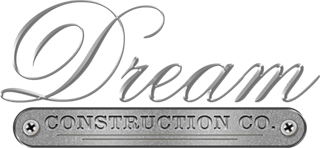
Embarking on a kitchen remodel can be an exciting but daunting task. A well-planned kitchen remodel can breathe new life into your home, but it requires thoughtful consideration and planning. Here are seven important questions to ask yourself before you begin.
1. What Style Suits Your Home & Personal Taste?
When planning a kitchen remodel, one of the most exciting decisions involves selecting a style that resonates with your taste and the overall aesthetic of your home. This choice sets the tone for your new kitchen and can significantly impact the enjoyment and functionality of the space. Here are key aspects to consider:
- Contemporary: Characterized by modern, sleek lines, this style often features minimalist cabinetry, bold color contrasts, and high-tech appliances.
- Traditional: This style is full of classic, timeless designs. You might include detailed woodwork and a warmer color palette for this kind of kitchen.
- Country Or Rustic: Ideal for those who prefer a cozy, homey feel. This style often uses natural materials like wood, stone, and brick, and favors a more relaxed layout.
- Industrial: Perfect for urban homes, featuring elements like exposed pipes, stainless steel surfaces, and a more open, warehouse-like feel.
- Eclectic: A blend of various styles, allowing for a more personalized space. This can include a mix of old and new elements, different textures, and unexpected color combinations.
- Minimalist: Focuses on simplicity and functionality, with clean lines, clutter-free surfaces, and a neutral color scheme.
2. How Much Space Do You Have and Need?
The space available in your kitchen and the space you actually require for your lifestyle are critical factors in a kitchen remodel. It’s essential to evaluate not just the square footage but also how that space is utilized. Here are steps to guide you through this assessment:
Assessing The Existing Kitchen Layout
- Measurements: Start by taking accurate measurements of your current kitchen, including floor space, wall space, and ceiling height. This will give you a clear idea of the physical area you have to work with.
- Traffic Flow: Consider how people move through the kitchen. Is there enough room for multiple people to cook together? Are there areas that consistently feel cramped?
- Work Triangle Efficiency: Evaluate the layout of your sink, stove, and refrigerator. These form the kitchen’s work triangle, and their placement can significantly affect efficiency.
- Storage Analysis: Take stock of your current storage space. Are your cabinets and drawers sufficient and easily accessible? Do you need more space for pantry items or appliances?
- Lighting & Ventilation: Assess the quality of natural and artificial light in your kitchen, as well as ventilation. Good lighting and ventilation are essential for a functional and comfortable kitchen.
Considering Expansions Or More Efficient Space Utilization
- Expansion Possibilities: If your current kitchen is too small, consider whether you can expand into adjacent rooms or build an addition. This could involve knocking down walls or extending the house’s footprint.
- Reconfiguring Layout: Sometimes, without changing the kitchen’s square footage, a reconfiguration can make a big difference. This might involve moving appliances or changing the shape of the countertop.
- Innovative Storage Solutions: Explore creative storage options like pull-out cabinets, wall-mounted shelves, or overhead pot racks to maximize space.
- Multifunctional Areas: Consider incorporating multifunctional spaces, such as a kitchen island that can serve as a prep area, dining space, and storage unit.
- Vertical Space Utilization: Utilize vertical space with taller upper kitchen cabinets or hanging storage solutions for pots and utensils.
- Decluttering: Sometimes, the issue is not the lack of space but having too much clutter. Assess what you need and use regularly, and consider decluttering to free up space.
3. Do You Regularly Cook Or Entertain In Your Kitchen?
One of the most important things to think about is how often you cook and entertain. If you love cooking, you want to focus on a layout that prioritizes efficiency. You might need more storage space for your kitchen gadgets, high-quality appliances, and a lot of countertop space for meal prepping.
If entertaining is more your style, think about an open-plan kitchen that seamlessly connects to living or dining areas, featuring a central island with bar seating for social interaction. Specialized features like double ovens, professional-grade ranges, or built-in wine coolers can further enhance the experience, depending on your specific interests and habits.
4. What Kind Of Budget Do You Have For The Kitchen Remodel?
When planning your kitchen remodel, you need to establish a clear budget that reflects your financial situation and remodeling goals. Begin by assessing your finances to determine a comfortable spending limit. Then, break down the expected costs, including labor, materials, appliances, and extra expenses like permits or dining out during construction.
It’s important to prioritize elements of the remodel that matter most to you — things like high-end appliances or granite countertops. You should also always include a contingency fund, typically 10-20% of the total project cost, for unforeseen expenses.
5. Have You Chosen The Right Contractor?
Selecting the right contractor is a pivotal decision in your kitchen remodel journey. The contractor’s skill, reliability, and professionalism will significantly impact the quality, timeline, and overall success of your renovation project.
Why Choosing The Right Contractor Is Important
- Quality Of Work: A skilled contractor brings expertise and craftsmanship to your project, ensuring that the work is done correctly and to a high standard.
- Project Management: A reliable contractor effectively manages the timeline, coordinates with subcontractors, and ensures that the project stays on track.
- Communication: Good communication is essential. The right contractor will keep you informed throughout the process, be responsive to your questions, and address your concerns promptly.
- Problem-Solving: Renovation projects can come with unexpected challenges. An experienced contractor can anticipate potential issues and have the know-how to resolve them efficiently.
- Reputation: Look for contractors with a solid reputation. Recommendations from friends, family, or online reviews can be invaluable in gauging a contractor’s reliability and quality of work.
Things You Should Consider When Choosing A Contractor
- Liability Insurance: Ensure that the contractor has liability insurance. This protects you from being held responsible for any accidents or damages that occur during the renovation.
- License Verification: Verify that the contractor is licensed to work in your area. Licensing indicates that they meet the required professional standards and legal requirements.
- Work Portfolio: Review the contractor’s past work to assess their craftsmanship and experience. This can give you a sense of their style, quality, and the types of projects they have handled.
- References: Ask for and check references. Speaking with past clients can provide insights into their satisfaction with the contractor’s work, adherence to budget and timelines, and overall experience.
- Contract Clarity: A reliable contractor will provide a clear and detailed contract outlining the scope of work, timeline, costs, and payment schedule.
Dream Up Your Ideal Kitchen Today
Tackling a kitchen renovation requires careful thought and planning. With the right team and thoughtful preparation, your dream kitchen can become a reality.
If you’re a homeowner in Las Vegas, NV looking to tackle a kitchen remodel, let Dream Construction help you navigate the process, making it as smooth and stress-free as possible. Contact us to bring your dream kitchen to life.
